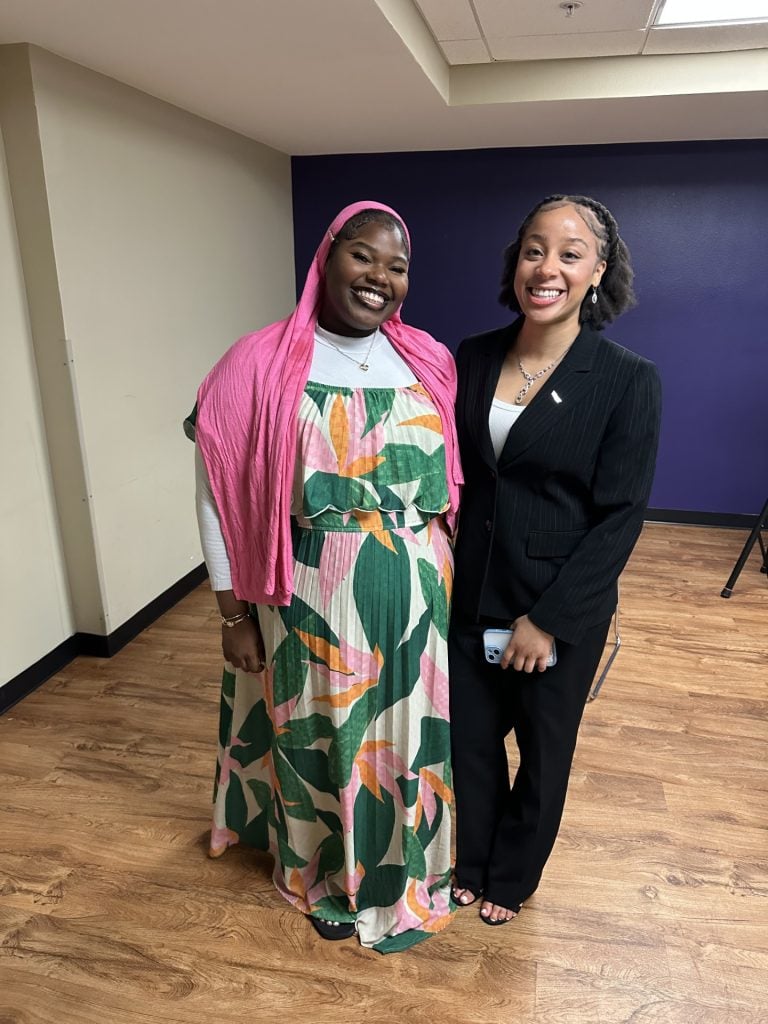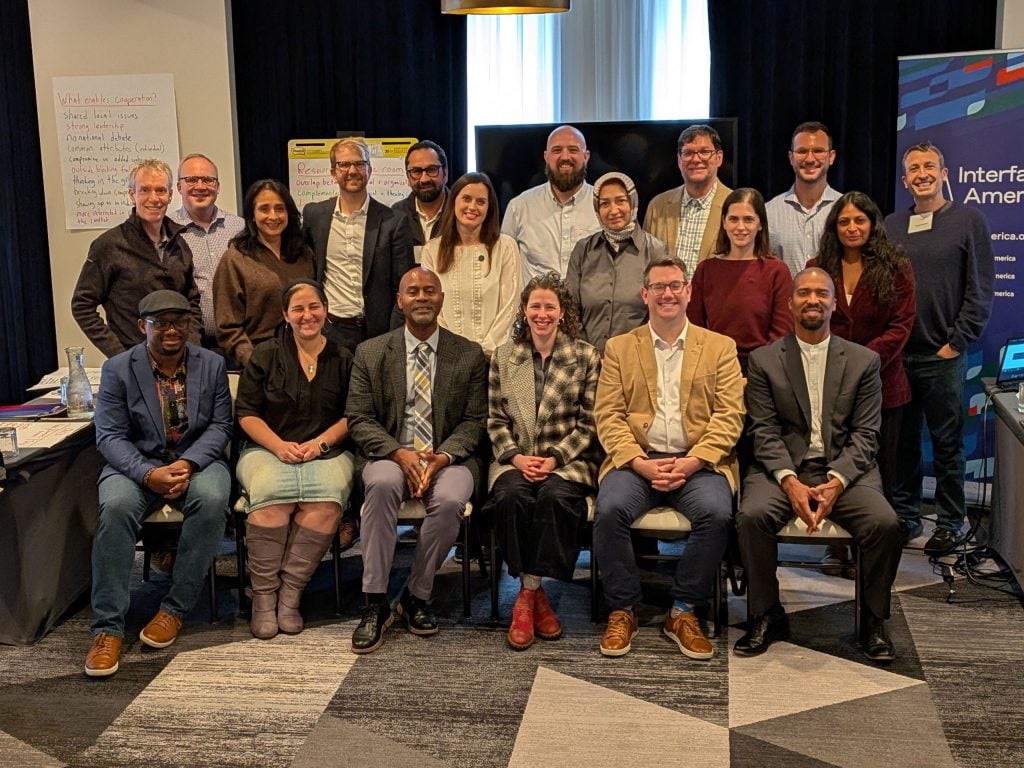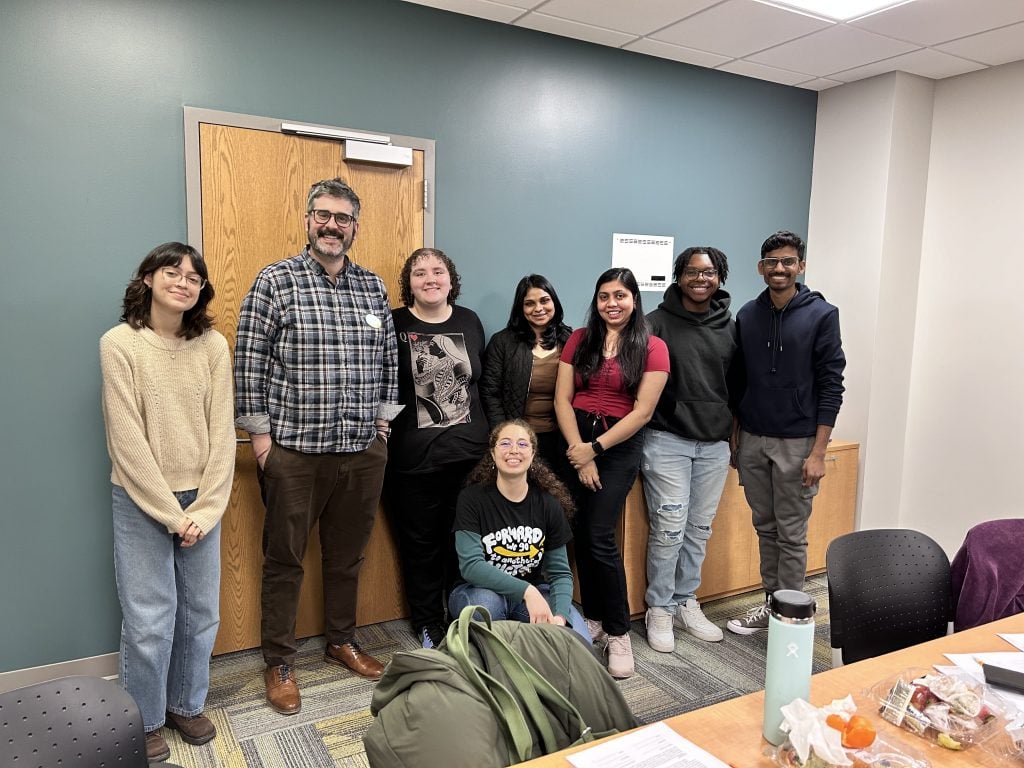World Interfaith Harmony Week is observed every year during the first week of February to showcase and strengthen the interfaith movement and people of goodwill worldwide. Proposed by the United Nations in 2010, this week builds on the pioneering Common Word initiative to reaffirm mutual understanding and interreligious dialogue as critical to a “culture of peace.”
In honor of this week, Interfaith America is shining a light on some of our ongoing interfaith initiatives in higher education. Campuses are uniquely positioned to help communities learn how to embrace differences while sustaining a common life together. Last year we partnered with the Templeton Religion Trust to fund eight institutions committed to investing in religious pluralism. Here’s a snapshot of the inspiring work of our Advancing Religious Pluralism grantees:
Utah State University is building on its strong foundation in interfaith engagement to revamp a course on religious difference, launch a new track in bridging religious difference through their beloved SpaceMakers program that bridges conflict through conversation, and hosting religious literacy workshops on campus. They continue to expand their partnerships with Salt Lake City religious leaders and focus on skill-based training with students across the disciplines.
In the Midwest, Washington University in St. Louis is marking World Interfaith Harmony Week by hosting an Interfaith Celebration Dinner, an all-campus event planned by undergraduate Interfaith Ambassadors. WashU ‘s Religious, Spiritual and Ethical Life will also host Spring Break in St. Louis: Interfaith in Action, a four-day immersion program with hands-on service and learning with neighbors in St. Louis. Augsburg University in Minneapolis has created a cohort of faculty from diverse academic disciplines including education, physics, and nursing to learn best practices for interreligious understanding and integrate religious pluralism into their curricula. A student-led interfaith art project will bring students with a range of religious and non-religious worldviews together for interreligious dialogue on building peace, joy and resilience.
In Waco, Texas, Baylor University has trained their faculty and chapel facilitators to bring an interfaith lens to their work. This includes weaving inter-religious perspectives into their popular Christian Heritage course and creating a new class, “Interfaith Community in Practice,” which brings together students from diverse faiths to explore spiritual themes in the context of community life at Baylor. Also in the Lonestar State, Wiley University hosted an Alternative Spring Break program in Washington, D.C., in where students had the chance to share and experience (many for the first time) an array of worship traditions: two Christian services at Alfred Street Baptist Church in Alexandria, Virginia and Shiloh Baptist Church in Washington, D.C., Sunday Diwan at the Guru Gobind Singh Foundation, a Sikh gurdwara, an Islamic Jummah (Friday) prayer service with Howard University’s Muslim Student Association, and a Jewish Shabbat dinner with students from Hillel at George Washington University.

On the East Coast, the University of Maryland, Baltimore County (UMBC), has developed two bedrock programs that will expand their interfaith offerings. The Interfaith Fellows Program equips students with practical skills and knowledge to help them develop leadership skills and invites them to create programs to shape UMBC’s interfaith community, while Bridge Builders is a cohort-based “difficult dialogue” program that has begun to shift campus conversations around religion and world events and inspired increased collaboration between student organizations on campus.
In New York City, St. Francis College, has integrated interfaith themes into their health science curricula and planned an Interfaith Appreciation Breakfast in October to engage with the campus community on what interfaith means to their school context. St. Francis is also creating a service-based interfaith fellows’ program, that will support students in giving back to their neighborhood (and for many, their home communities) while living out the spirit of cooperation across difference. In New England, Tufts University’s Chaplaincy found a way to share more widely the reexperience of interfaith cooperation and dialogue by integrating these experiences across pre-orientation programs and offering a field trip series in the Metro Boston area.
Reaz Khan is a Program Manager in Campus Partnerships at Interfaith America.




